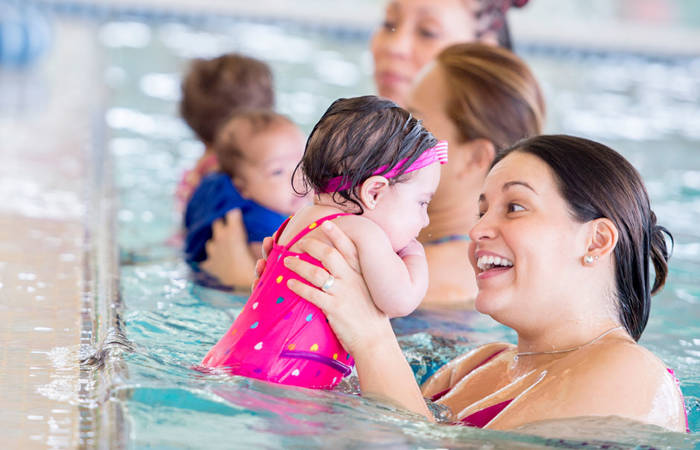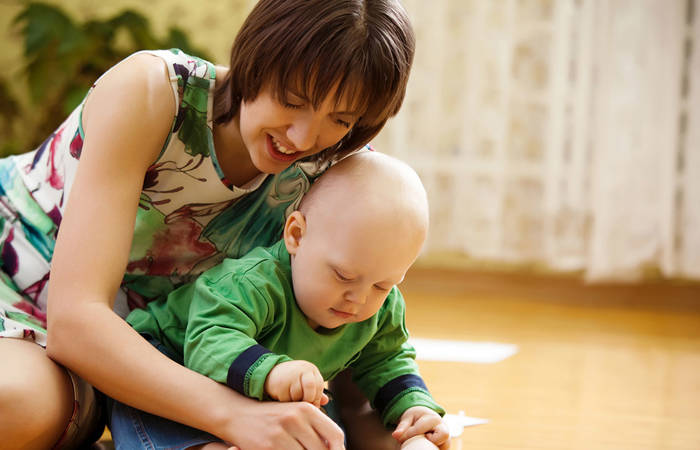Like what you see?
Sign up to receive more free parenting advice.
Thank you for subscribing to our newsletter!
Child Development

Credit: iStock.com/monkeybusinessimages
When we hear the term ‘helicopter parent’ it’s impossible not to visualise a parent hovering over their child’s every move, falling into a wild panic in case their child gets in harm’s way.
There would be very few parents who would welcome being referred to as a ‘helicopter parent’ – the term itself suggests a parent who cannot allow their child any independence.
When children are young, if a parent intervenes and does everything for the child, they’re not teaching the child self-regulation skills. All children need to be able to learn to manage their moods and manage their frustrations.Dr Judith Locke
Helicopter parenting
Psychologist Dr Judith Locke prefers the term ‘over parenting’ and says helicopter parenting is a term originally created for university students whose parents were still holding them close.
“The term ‘helicopter parenting’ has moved down to cover other age groups as well, which is why I prefer to use the term ‘over parenting’. What it means is that it’s too much of a good thing. Often parents just need to back up a little, not necessarily fully back but if they can back up a little they will help their children more and more,” Dr Locke says.
“When children are young, if a parent intervenes and does everything for the child, they’re not teaching the child self-regulation skills. All children need to be able to learn to manage their moods and manage their frustrations.”
“But, if the parent comes in to solve as particular task for the child as soon as the child experiences any challenge, then the child isn’t learning how to deal with frustration.”
Dr Locke, author of The Bonsai Child, says it’s crucial that children learn to keep persisting with a task until they get it.
“When a parent steps in and does everything for the child, that suggests that what the child is doing, which is struggling with a task, is actually unacceptable to the parent as well.”
“Imagine there’s a child who is putting some blocks together and they’re having trouble doing it, then the parent races in when they see their child isn’t getting it right and fixes it for them. The parents are helping to make life harder for the child in the long run.”
“What you’ll see is, years later, when that child experiences any difficulty with their homework and says, ‘I’m stupid, I can’t do it!’ it’s because they haven’t learned how to persist with a task .
Resilience and self-regulation
A newly released 2018 American Psychological Association study found that overly controlling parenting can negatively affect a child's ability to manage his or her emotions and behaviour.
The study, Childhood Self-Regulation as a Mechanism Through Which Early Over-controlling Parenting Is Associated With Adjustment in Preadolescence1 found children of helicopter parents may be less able to deal with the challenging demands of growing up, particularly navigating the complex school environment.
According to the study, “Children who cannot regulate their emotions and behaviour effectively are more likely to act out in the classroom, to have a harder time making friends and to struggle in school.”
The study found, “Although many overprotective parents may be trying to protect their child and shield him or her from harm, these parents may be receptive to parent training to afford their child the opportunity to develop appropriate self-regulatory skills and better overall adjustment by preadolescence.”
Researchers found over-controlling parenting when a child was two was associated with poorer emotional and behavioural regulation at age five. Also, the greater a child's emotional regulation at age five, the less likely he or she was to have emotional problems and the more likely he or she was to have better social skills and be more productive in school at age 10.
By age 10, children with better impulse control were less likely to experience emotional and social problems and were more likely to do better in school.
“By the end of early childhood, children with over controlling parents may be less able to manage the challenging demands that come with entering and navigating through the school environment, leading to greater maladjustment across social, emotional, and academic domains.”
Dr Locke believes the biggest asset that a child should be developing over time should be their skills in resilience and self-regulation.
“A common case I see is when a child has behaved badly and the parent takes something away from them – let’s say it’s the child’s iPad and they might say, ‘But I need to finish the game I’m playing!’ Or, if they’re at school, maybe they have to finish their homework.
“Most parents will give in and stop the consequence or punishment. It’s telling the child that a game or minor homework task is more important than being a respectful nice person.”
Dr Locke believes much of ‘over parenting’ is born out of a parent trying to improve their child’s current mood and wanting to focus on their child’s self-esteem. Some parents also want to give their child immediate success by using praise or making things right for the child.
“So the child is used to experiencing success and is very used to applause as well. It becomes a very external effort, so they don’t develop their personal motivation to do these things as well. But the trouble is, if it’s all parental effort to make their child feel good, then the child becomes very reliant on the parent manipulating circumstances to make them feel good.
“Parents need to look at the big picture and the ongoing skills that their child already has and the skills they must attain to help them in the future.”
Using bribery
Dr Locke also cites the example of parents using bribery to convince their child to behave.
“When young children refuse to do what their parents ask them to, for example to put their shoes on before they go to Nanna’s house. The parent will say ‘If you put your shoes on, we’ll get an ice cream on the way to Nanna’s’. The child puts on his shoes and the parent thinks, ‘Great! I’ve made my child behave in the appropriate way’.
“But, what they’ve done is actually given the child an incentive that stops him from normally going along with what you want them to do. The other issue is they’ve not learnt to ‘team work.’ The family has to work together to get to Nanna’s house and if you’re not getting your child to fit in, it’s really stopping skills such as respect.
“You can see why busy parents will offer an ice cream to get through any difficulties. But it’s a short term gain that causes long term problems.”
1 https://www.apa.org/pubs/journals/releases/dev-dev0000536.pdf



